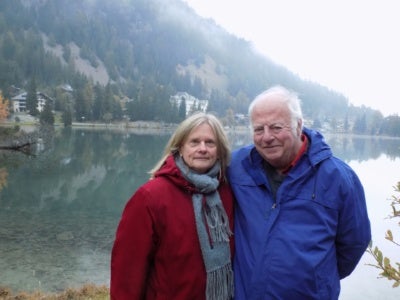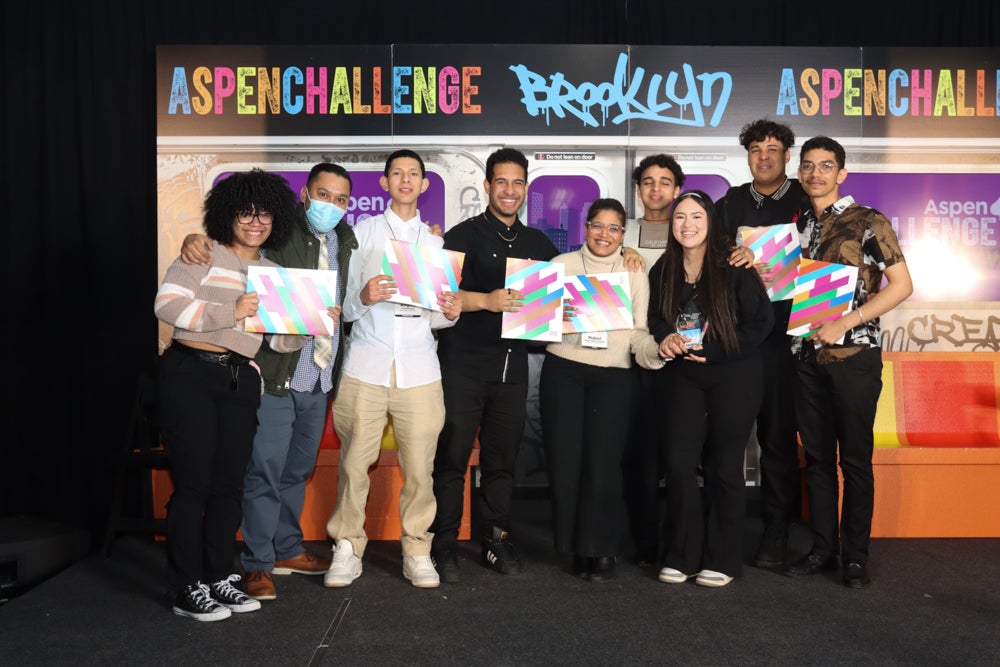Charles Van Doren, scion of one of America’s premier intellectual and literary families, died on April 9, 2019, at the age of 93. His father, Mark Van Doren, was a Pulitzer Prize winner, poet, literary critic, and professor of English at Columbia University. His mother, Dorothy Van Doren, was a novelist and editor. His uncle, Carl Van Doren, was a professor of literature, historian, and a Pulitzer Prize winner in biography.
Charles graduated from Manhattan High School of Music and Art, served in the Army Air Force for two years, graduated with honors from St. John’s College in Annapolis (famed for its Great Books curriculum), earned a Masters degree in Mathematics from Columbia at 23, studied at Cambridge University and the Sorbonne, began teaching at Columbia in 1955, and earned his doctorate in literature there in 1959. Charles Van Doren was born, raised and educated to be a major figure in the academic and literary communities of New York and the United States.
This life story was not to be. As several obituaries published in major newspapers emphasized, Van Doren upended his life plan and suffered lasting humiliation because he participated in what became an infamous scandal during the 1956-1957 television season. He was fed the questions and answers for his participation in the NBC quiz show “Twenty-One,” although he appeared to work hard to dredge the answers from his prodigious memory. For many weeks, Van Doren became a celebrated public figure (on the cover of Time magazine, for example). When skepticism began to grow about the program, he insisted to the press and public, to his family and friends, and even to a grand jury that he had not participated in any deception. Not until March 1959 did Charles Van Doren admit to Congressional investigators that the show was a hoax, and that he had not only been given the answers but had been coached about how to make the process more exciting and dramatic. With that, Van Doren lost his job at Columbia, his NBC contract, his respected status and for a time his own sense of integrity and direction.
That, unfortunately, is how Charles Van Doren has been and is known, in life and after death, by most people who remember his name. Not so, however, for those, like us, who the unique privilege and pleasure of learning with and from him in the brilliant Aspen Executive Seminar that he moderated for the Aspen Institute.
The Aspen Executive Seminar was designed for business executives and other leaders to stretch their minds in order to cope with complex issues of ethics and values. The sessions focused on democracy and capitalism, “the two defining issues of the society in which we live,” in the words of the Aspen Institute’s founder, Mortimer Adler. During the initial years of the seminar, participants would examine four fundamental (but not fully compatible) principles—equality, liberty, justice and property. Inspired by Adler’s commitment to a classical approach to education known as paideia, the seminar utilized the “Socratic method.” Discussion leaders stimulated discussion based on well-chosen selections from several classics in the Western tradition, from Aristotle, Plato and Thucydides to Jefferson, Franklin and (as the curriculum evolved) Martin Luther King, Jr.
When we attended the Aspen Executive Seminar about 30 years ago, Charles Van Doren was our brilliant discussion leader. We remember with great appreciation and respect the way he turned our group into a memorable intellectual journey, turning each member of the seminar into an active and often profound contributor.
He did this in part by making us formal equals, whether we came to the table as CEOs, ambassadors, lawyers, politicians, or academics, insisting that we could only be addressed by Mr., Mrs. or Ms., not by first names or honorifics. Our group included a university president, the lieutenant governor of a midwestern state, a prominent New York banker and several other business executives, a senior naval officer in the Judge Advocate General Corps, a career ambassador, a couple of social science professors and a couple of spouses as active participants.
During the first week Van Doren broke us all down, gently, making us realize that our assumptions were often weak, that we needed to take the readings seriously and come to seminar prepared to say something about them, and that we should focus on questions for which there were no easy answers. As a teacher, Charles was congenial but tough, with the skill to force self-confident and mature adults to identify their unconscious assumptions and open their minds to new ways of thinking. His questions, his respectful yet challenging style and his ability to elicit new insights made these discussions exhilarating. We often continued our discussions among ourselves over dinner and into the night. By the second week, our minds open to new ideas and eager for more, we were able to speak with confidence and gain his respect and the respect of the others.
One memorable example of Van Doren’s technique occurred in the Monday morning seminar after we had read Herman Melville’s Billy Budd over the weekend. Van Doren called on volunteers to summarize the plot of the novel and to do so in a nonjudgmental way. The first three participants began with some version of, “this is a story about a young sailor who is unjustly condemned”; Van Doren stopped them, pointing out they had been judgmental, failing to follow his instructions. Abe then gave it a try, and Van Doren let him finish, saying that he had avoided being judgmental, but had missed an important point. We then debated the issues in the story, particularly the sea captain’s struggle as he felt he must condemn a man he believes is good and morally “innocent” for breaking the rules in killing a sadistic and manipulative superior; our debate was enriched by one of our participants, a senior naval lawyer.
Van Doren did not speak, in the seminar or informally, of his quiz show experience. But when he talked about the classical tale of the Ring of Gyges—a ring that allowed its wearer to act without being seen—we realized that he was reflecting on his experience and subtly pushing us to consider, honestly, how we would act if we could wear such a ring.
Throughout the seminar, we were reminded of the conflict between the Greek tragic view of the human condition and the modern Western view (behind both capitalism and democracy) that history is linear and progressive, the faith that underlies the Enlightenment and the foundational documents of American democracy. This contradiction was implicit in much of the seminar, but did not at first connect to our “real” Cold War lives that pitted liberal capitalism and democracy against a fading communist threat.
Today, with democracy under threat and no clear ideological enemy, we live in a time when the contradictions that troubled the Greeks have become more evident again. History is not linear, and our trust in democracy is once again being tested. The discussions we had about balancing liberty and equality in a world of market capitalism occurred as we were coming to recognize that America had “won” the Cold War and faced no serious geopolitical or ideological threats. The easy “all good things go together” optimism of that time seems very distant in today’s atmosphere of polarization, resentment and distrust.
We fondly remember Charles Van Doren, his insistence that we dig more deeply, his commitment to the Western tradition, and his emphasis on the hard work of recognizing and trying to reconcile values in conflict. That tradition still offers important resources that we should call upon in the face of new challenges.

The views and opinions of the author are his own and do not necessarily reflect the view of The Aspen Institute or the Aspen Executive Leadership Seminars Department.
Jane Jaquette and Abraham Lowenthal participated in several Executive Leadership Seminars since the late 1980’s.
Jane Jaquette and Abraham Lowenthal are both emeriti professors at Occidental College and the University of Southern California respectively. Dr. Jaquette was invited by Charles Van Doren to co-direct a subsequent Aspen Executive Seminar, a wonderful honor and experience.

